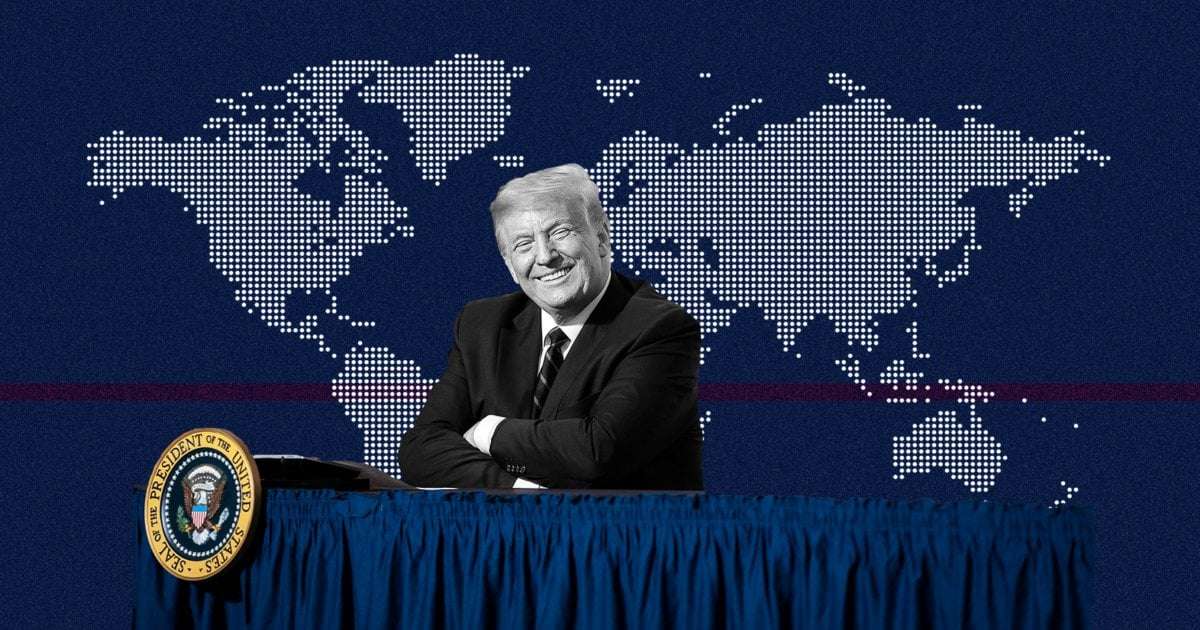Donald Trump made up to $160 million from international business dealings while he was serving as president of the United States, according to an analysis of his tax returns by CREW.
Throughout his time in office, President Trump, his family and his Republican allies repeatedly assured the public that his refusal to divest from his businesses wouldn’t lead to any conflicts of interest. Americans were promised that Trump would donate his salary, which he did, until maybe he didn’t—all while siphoning millions from taxpayers that more than offset his presidential pay. When it came to foreign conflicts of interest, Trump and his company pledged to pause foreign business. They did not.
Trump pulled in the most money from the United Kingdom, where his Aberdeen and Turnberry golf courses in Scotland helped him gross $58 million. Trump’s now-defunct hotel and tower in Vancouver helped him pull in $36.5 million from Canada. Trump brought in more than $24.4 million from Ireland, home to his often-visited Doonbeg golf course, as well as $9.6 million from India, and nearly $9.7 million from Indonesia.
Trump’s presidency was marred by unprecedented conflicts of interest arising from his decision not to divest from the Trump Organization, with his most egregious conflicts involving businesses in foreign countries with interests in US foreign policy.
The full extent to which Trump’s foreign business ties influenced his decision making as president may never be known, but there is plenty of evidence that Trump’s actions in the White House were influenced–if not guided–by his financial interests, subverting the national interests for his own parochial concerns. For example, while campaigning in 2015, Trump bragged to a crowd in Alabama about his longstanding business ties with the Saudis. “They buy apartments from me. They spend $40 million, $50 million,” he told the crowd. “Am I supposed to dislike them? I like them very much.” In office, Trump continued to benefit from Saudi business and faced repeated criticism, especially in the wake of the murder of Jamal Khashoggi, for his apparent desire to shield Saudi leaders from criticism, going so far as to question US intelligence while parroting allegations from Saudi Arabia that Khashoggi was tied to the Muslim Brotherhood.
Other instances of Trump’s business interests bleeding into his administration’s foreign policy abound. In 2019, Trump stunned the US foreign policy establishment by pulling US troops out of northeast Syria. The decision had no obvious benefits to the US and was a bombshell reversal to allied Kurds, but it was a victory for Turkey, where Trump had done business for years. In China, Trump again shocked even his GOP allies when he pledged to help sanctioned Chinese company ZTE because, as he tweeted, there were “[t]oo many jobs in China lost,” despite warnings from US intelligence officials that the company’s products may be used by the Chinese government to spy on Americans. When Trump’s tax returns were released more than four years later, they showed a Chinese bank account he claimed to have closed in 2015 and, according to CREW’s analysis, more than $7.5 million in income from China. In Argentina, Trump held off on enacting tariffs until after trademarks for his company had been approved.

LastOneSergeant on April 13rd, 2023 at 16:26 UTC »
If you have two jobs and one pays you 400,00 and the other pays you 160 million which one is your priority and which is your side gig?
Are you only doing the side gig because it provides opportunities to increase revenue on your main gig?
johnnybiggles on April 13rd, 2023 at 16:11 UTC »
hE's a bIlLiOnAiRe.. hE cAn'T bE bOuGhT!!1!
Yeeaaaarrrgh on April 13rd, 2023 at 15:32 UTC »
At this point I'm more concerned with what that orange coated psychopath exchanged for such goods and services.